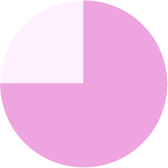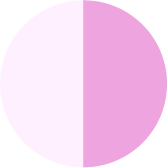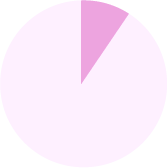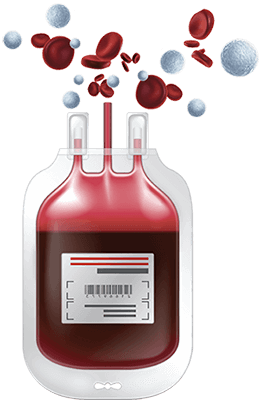Canada's Largest & Oldest Cord Blood Bank
Your little one is growing up fast! He or she is embarking on toddlerhood and will become more and more independent from now on.
Milestones This Month

Most babies can
- Address each parent specifically with “dada” and “mama”
- Play peekaboo and pat-a-cake
- Stand for a few seconds
- Point at objects

Half of the babies can
- Put objects into a container
- Follow simple instructions
- Imitate activities

A few babies can
- Take a few steps
- Drink from a cup
- Say words beside “mama” and “dada”
- Stoop from standing
Baby Development at 11 Months
Your little one sure has grown in the past months. According to the growth charts from the World Health Organization, an average 11-month-old baby girl should way around 19.2 pounds (8.71 kilograms) and an average 11-month-old boy around 20.8 pounds (9.43 kilograms).

Is your soon-to-be toddler walking yet? If not, no need to worry! Babies start walking from anywhere between 11 to 13 months. Some babies start early, others are content to be crawling until later on. As long as your baby is active and mobile (crawling or scooting), he or she is well on the way to walking. Your little one can likely pull up to a standing position and cruise on furniture now. So bring out those push toys and give them lots of practice.
Your baby is now calling you “mama” or “dada” specifically. Some babies at this age can say one or two other words with meaning as well. Continue to read and talk to your baby, to help him or her develop these early language skills.
Many 11-month-olds have good motor control. They can clap hands, bang objects, wave and put small objects into a cup or a container. Stacking toys, blocks, cups and crayons will help your baby refine these fine motor skills. Your little one also appreciates pretend play at this age. Invest in a doll house, a tool set, a play phone or dinnerware set and play to give your baby’s imagination a workout.

Pregancy Tip
Babies at this age are interested in playing alongside other children. Give your baby the opportunity to do this by registering for a baby class or by scheduling a playdate.

Supporting Your Baby
Feeding
Your baby should be eating 3 solid meals and around 1-3 good snacks, at this point. If you are considering incorporating cow milk into your baby’s diet, doctors still recommend waiting until after the first birthday to do this. This is because cow milk isn’t as easy to digest as breast milk or formula. It has more proteins and minerals, which can put too much stress on your baby’s digestive system if introduced too early. Cow milk also doesn’t have the right amount of iron and vitamin C, your baby needs.
When introducing your toddler to cow milk, start with whole milk (whole fat milk). Cow milk is a great source of calcium and vitamin D, both of which are required for bone development. Calcium also plays a role in blood clotting and muscle control. If your family is vegan or if your toddler is not able to tolerate cow milk, talk to your doctor about introducing your toddler to fortified soymilk, almond milk or other alternatives. Limit your toddler’s milk into to less than 3 cups, which will ensure he or she will still consume solid foods with essential nutrients and minerals for growth.
If you are breastfeeding, it is not necessary to wean your toddler once you introduce cow milk. Many moms continue to breastfeed well past the first birthday. Every toddler is different, so do what is right for you and your baby.

Sleep
On average a 11-month-old baby should be getting 12 to 14 hours of sleep a day. About 10 to 12 hours of this sleeping is acquired at night and the rest will be divided in to 1-2 naps. Some babies switch from two naps to one nap around the 1st birthday. And, hopefully your little one is now getting all of his or her night-time sleep in one stretch.
Try not to get too used to this amazing sleep schedule, because there’s a sleep regression that happens around 12 months.
Go the Distance & Keep Informed
Open a Whole New World of Possibilities
By preserving both cord blood and cord tissue you will secure for your baby access to two different types of stem cells in the future.
Clinical trials are exploring the use of mesenchymal stem cells from cord tissue to treat some of the most prevalent diseases of the 21st century such as arthritis, Alzheimer’s disease, diabetes and heart disease.





